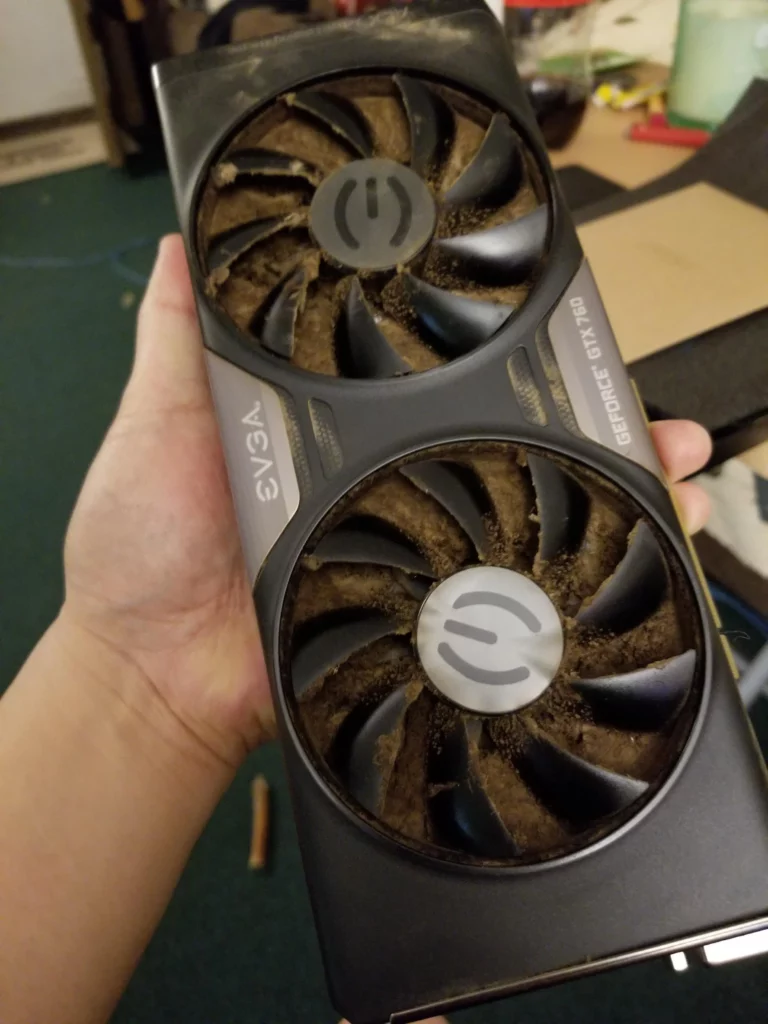Well, your graphics card is basically a super-powerful computer that runs games at super-high frame rates. The more powerful the GPU, the better the games will look and the higher the frame rate.
However, like any other computer component, graphics cards have their own lifespan. If they’re under constant strain, they can eventually break down and start to show signs of wear and tear.
In this article, we’ll explore some common signs on how to tell if your GPU is dying and how to tell if it’s time to upgrade before it’s too late.
What Causes a GPU to Fail?
As with any other computer component, there are a number of factors that can cause your graphics card to die. Some of the most common reasons for this include:
- Overheating
- Malfunctioning fans
- A corrupted or old driver
- Improper cooling in an enclosed case
- Rising temperatures due to overclocking

How Long Do Graphics Cards Last Before Dying?
A graphics card typically has a lifespan of 3-5 years. This number is on the lower end of the spectrum, with some GPUs lasting as much as 8-10 years.
But, regardless of how long your graphics card lasts before dying, it’s always important to regularly check up on its performance.
If you notice that your graphics card is taking longer than normal to render things or if it’s struggling to run games at acceptable frame rates, it’s time to upgrade.
5 Main Signs of a Dying GPU
If your graphics card seems to be experiencing performance issues, it might be time to replace your GPU.
If you notice that your games are lagging or the frame rate is causing choppy gameplay, there’s a good chance you need to replace your GPU.
System restarts: If you can regularly experience system crashes or freezes, this could indicate that your graphics card is just too old and needs to be replaced.
Graphic artifacts: This is a visual display of scrambled pixels on the screen. It could appear as an image that looks like a mess or jumbled out of place.
Inability to play games at higher resolution: When playing games on a 4K monitor, if you’re unable to play at 4K resolution, then it might be time for an upgrade.
Slowing down or freezing up: This typically happens in games where the frame rate slows down significantly when there is no input by the player.
Overheating and crashing during intensive activity: If your GPU starts getting really hot and then shuts down, it probably means it’s time for an upgrade.
How to Diagnose a Dying Graphics Card
A lot of steps can be taken to diagnose a dying graphics card. For starters, you can use your computer’s built-in diagnostic tools to check for software errors.
If your computer is constantly crashing, or if you’re having trouble running games at higher settings, it could be time to replace your GPU.
Another way to tell if a GPU is dying is by looking at the fans on it. If they start making a loud noise when they should be spinning normally, there’s probably something wrong with the fan.
Sometimes, the GPU overheats and will overheat the fans causing them to make an audible noise.
If none of the above methods work, try checking how much power your graphics card is pulling from your motherboard.
A failure in a graphics card can cause your system’s overall performance to degrade and put a strain on other components in your system like the CPU and motherboard.
To test this out, open up Windows Device Manager and find out how much power the GPU is pulling from your motherboard.
If it’s high, then it might not just be because of wear and tear but also because of hardware failure which means you should have it checked out before continuing with any upgrades.
Summary: How To Tell If Your GPU is Dying
The more powerful the GPU, the better the games will look and the higher the frame rate. However, like any other computer component, graphics cards have their own lifespan.
If they’re under constant strain, they can eventually break down and start to show signs of wear and tear.
Common signs on how to tell if your GPU is dying are: GPU usage is consistently high or when your games take a long time to load up.
Your PC has an unusual amount of noise coming from it. Your PC starts to freeze up in game or desktop mode frequently.
You Might Also Like
